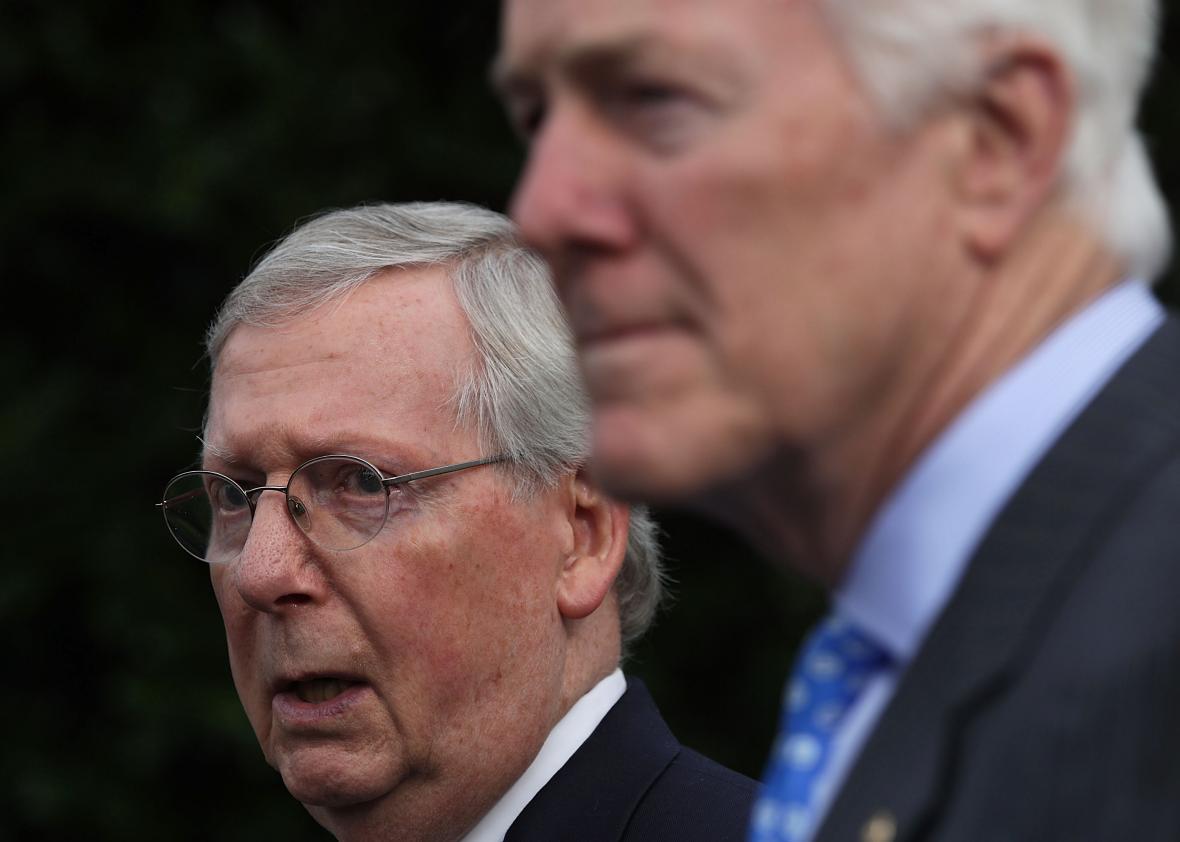A cynic might suggest that Senate Republicans, in drafting the Better Care Reconciliation Act, pushed the deepest Medicaid cuts into 2025 and beyond so as to put a prettier face on their Congressional Budget Office score, which only analyzes the effects of the first 10 years of legislaton. If that cynic’s reading were true, it still wouldn’t work out all that well for Republicans. First, the CBO score they got back on their legislation was still extremely ugly. Second, an analysis of what would happen after the 10-year window would come out anyway. Democratic Sens. Bernie Sanders and Ron Wyden, ranking members of the Senate Budget and Finance committees, respectively, requested a CBO report on the long-term effects of the Senate health care bill’s Medicaid reforms. The CBO published it Thursday afternoon.
The brief report shows that under the BCRA’s reforms, Medicaid spending would be 26 percent lower than current law projections by 2026, and 35 percent lower by 2036. In the short term, the bulk of the Medicaid cuts come from phasing out the Affordable Care Act’s Medicaid expansion. In the long term, the savings would accrue as the stingy caps on spending growth take effect on the core Medicaid program.
Over the next decade, CBO projects, a large gap would grow between Medicaid spending under current law and under this bill. In later years, that gap would continue to widen because of the compounding effect of the differences in spending growth rates. CBO projects that the growth rate of Medicaid under current law would exceed the growth rate of the per capita caps for all groups covered by the caps starting in 2025.
Put another way: By 2036, Medicaid spending would be nearly a full percentage point of GDP lower than it would be under current law.
In CBO’s extended baseline, Medicaid spending is projected to be 2.0 percent of GDP in 2017 and 2.4 percent by 2036. The 35 percent reduction in that spending that CBO estimates for 2036 under this legislation would result in Medicaid spending of 1.6 percent of GDP.
And as for the talking points that these cuts wouldn’t really force states to make many hard choices, like cutting benefits or enrollment:
Under this legislation, after the next decade, states would continue to need to arrive at more effcient methods for delivering services (to the extent feasible) and to decide whether to commit more of their own resources, cut payments to health care providers and health plans, eliminate optional services, restrict eligibility for enrollment, or adopt some combination of those approaches. Over the long term, there would be increasing pressure on more states to use all of those tools to a greater extent.
Another CBO report laying out the BRCA’s harsh treatment of Medicaid is not what GOP senators need right now as they try to reach an agreement on a piece of legislation with 12 percent public support. It could, however, give moderates a leg up in negotiations over whether the caps need to be lifted. We’ll see.
